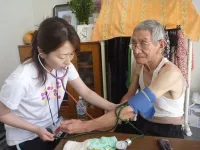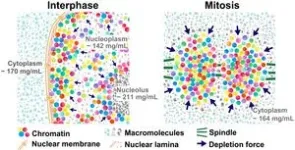Healthcare is undoubtedly crucial for everyone. As individuals age, the risk for health issues and related expenses increases. Consequently, many countries have universal healthcare systems, primarily funded through tax and insurance, to ensure access to essential healthcare services. However, this system is under a heavy fiscal burden since the aging population has increased manyfold, owing to decreasing fertility rates and increasing life span. To sustain the system, governments must face the herculean task of persuading citizens to contribute more to health insurance.
In a recent study, a research team consisting of Associate Professor Tomoko Matsumoto and Junior Associate Professor Daiki Kishishita from Tokyo University of Science, Japan, assessed whether informing individuals about the benefits they would personally receive in the future from the healthcare system could lead to successful persuasion. This study was published in the European Journal of Political Economy on 8 August 2024.
Highlighting the rationale behind their study, the authors say, “Aging-related health risks will affect everyone, regardless of socioeconomic groups. However, studies indicate that people are not well-informed about the government’s fiscal activities, particularly related to public healthcare systems, and the benefits they offer. So, informing individuals about self-benefits from the healthcare system may increase their political support for higher contributions to healthcare insurance to sustain the system.”
Accordingly, researchers developed a two-period overlapping generations model and hypothesized that informing people about future self-benefits may increase their support for paying more for health insurance. However, this support reduces when individuals learn about the system’s fiscal unsustainability due to an aging population.
To test these hypotheses, researchers conducted an online survey experiment with 4,367 Japanese respondents, who were mostly below 75 years of age. They were randomly assigned to receive information framed in terms of the future self-benefits (Framing S) or current benefits received by older adults (Framing N). In Framing S, they were again randomly assigned either to the treatment group that received information about future self-benefits or the control group that did not. The treatment group was further divided into those who were informed of the fiscal risks and those who were not. Respondents then rated their support for a 1% increase in health insurance contributions. The same process was followed for Framing N. Lastly, researchers compared the results from both groups to see which framing was more effective.
In Framing S, 81% of the respondents underestimated the benefits of the public healthcare system. This suggests that these respondents’ expectations would increase when provided with the actual self-benefits. So, researchers considered only these respondents for further analysis.
Surprisingly, on average, the treatment (informing people about future self-benefits) had no influence on gaining support for higher contributions to health insurance. Interestingly, for those who were unaware of the fiscal risks, the treatment increased support by 28.9 percentage points. However, as expected, this positive effect disappeared once the unaware group learned about the fiscal unsustainability of the public healthcare system.
In Framing N (where future self-benefits were not explicitly highlighted), the treatment had no effect on respondents who were unaware of the fiscal risks. However, among those who were aware, support dropped by eight percentage points. “The results indicate that informing the benefits without framing them as self-benefits may have a limited impact on increasing political support for higher contributions to health insurance,” says the authors.
The findings carry significant implications for policymakers, governments, and countries with struggling public healthcare systems and an aging population.
“To increase support for health insurance systems, it is important to inform people about future self-benefits. But first, people need to believe that they will definitely benefit from the system in the future. This could be achieved by implementing fiscal consolidation policies to build trust in public finance,” conclude Dr. Matsumoto and Dr. Kishishita.
***
Reference
DOI: 10.1016/j.ejpoleco.2024.102597
About The Tokyo University of Science
Tokyo University of Science (TUS) is a well-known and respected university, and the largest science-specialized private research university in Japan, with four campuses in central Tokyo and its suburbs and in Hokkaido. Established in 1881, the university has continually contributed to Japan's development in science through inculcating the love for science in researchers, technicians, and educators.
With a mission of “Creating science and technology for the harmonious development of nature, human beings, and society," TUS has undertaken a wide range of research from basic to applied science. TUS has embraced a multidisciplinary approach to research and undertaken intensive study in some of today's most vital fields. TUS is a meritocracy where the best in science is recognized and nurtured. It is the only private university in Japan that has produced a Nobel Prize winner and the only private university in Asia to produce Nobel Prize winners within the natural sciences field.
Website: https://www.tus.ac.jp/en/mediarelations/
About Associate Professor Tomoko Matsumoto from Tokyo University of Science
Dr. Tomoko Matsumoto is an Associate Professor at Tokyo University of Science. She received her PhD in Politics from the University of Tokyo in 2016. Her research work focuses on quantitative political science, including public opinion, election, redistribution, and elite mobility. She has published 10 papers and delivered 72 presentations. She previously served as a Designated Lecturer at Nagoya University and as a Visiting Research Professor at New York University. In 2024, she received the Tokyo University of Science Outstanding Researcher Encouragement Award.
About Junior Associate Professor Daiki Kishishita from Tokyo University of Science
Dr. Daiki Kishishita is a Junior Associate Professor at Tokyo University of Science. He received his PhD in Economics from the University of Tokyo in 2020. His research work focuses on applied micro economics, including political agency problems, media bias, decision-making under Knightian uncertainty, and redistribution. He has published 14 papers and delivered 84 presentations. He has received several awards including ISER Moriguchi Prize in 2019.
Funding information
This study was financially supported by JSPS KAKENHI under Grant numbers 22K13339 and 22K13368.
END







